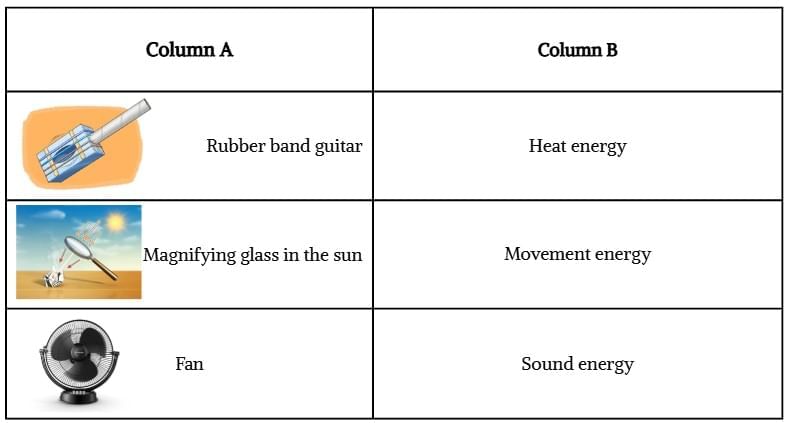Unit Test: Energy — How Things Work | Our Wondrous World Class 5 - New NCERT PDF Download
Time: 45 Minutes
M.M.: 20
Attempt all questions.
Question numbers 1 to 6 carry 1 mark each.
Question numbers 7 to 9 carry 3 marks each.
Question number 10 carries 5 marks.
Q1. Which is a clean source of energy?
(a) Coal
(b) Diesel
(c) Solar energy
(d) Kerosene
Q2. Fill in the blanks:
Energy makes things ______, produce ______, give ______, and change temperature.
Q3. True or False:
Wind can make a pinwheel rotate, and water can turn a water wheel.
Q4. Which fuel commonly used at home for cooking is cleaner than coal or wood?
Q5. Match the following:
Q6. Which airport is known for being entirely powered by solar energy?
(a) Mumbai
(b) Delhi
(c) Cochin
(d) Chennai
Q7. Give three examples from daily life where electricity is used for different purposes.
Q8. Why is energy efficiency important? List three actions to save energy at home/school.
Q9. Give three reasons why wind, solar, and water are called clean sources of energy.
Q10. Draw a simple “Energy Flow” for any one device and explain:
(a) Source of energy,
(b) Type of energy used/converted,
(c) Useful output.
Find Solutions for the Unit Test - Here
|
11 videos|211 docs|10 tests
|
FAQs on Unit Test: Energy — How Things Work - Our Wondrous World Class 5 - New NCERT
| 1. What is energy, and why is it important in our daily lives? |  |
| 2. What are the different forms of energy? |  |
| 3. How do we obtain energy for our everyday needs? |  |
| 4. What is the law of conservation of energy? |  |
| 5. How does energy impact the environment? |  |















